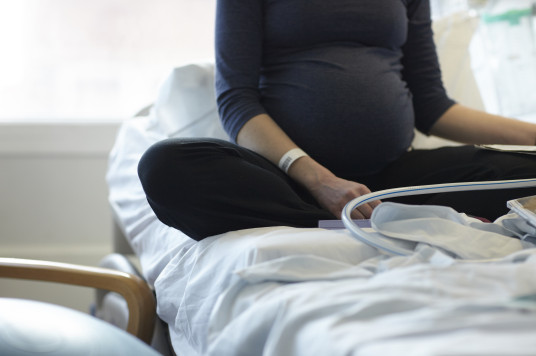Study suggests diet and exercise does not prevent gestational diabetes in obese women
A study published in Lancet Diabetes and Endocrinology today has found that a diet and exercise regime designed for ‘high-risk’ obese pregnant women does not prevent gestational diabetes.
The research, led by King’s College London, suggests that resources to tackle gestational diabetes in obese pregnant women would be better directed towards screening, stringent diagnosis and treatment.
Excessive weight is a risk factor for complications in pregnancy, especially gestational diabetes and large-for-gestational-age delivery (LGA). Previous studies have suggested that lifestyle intervention programmes might help reduce the risk of gestational diabetes in obese pregnant women. However, the UPBEAT study, funded by the National Institute for Health Research, is first large-scale trial to test the effect of an intensive intervention in the UK and the world.
Over 1,500 women from eight inner-city antenatal services, including some receiving care at St George’s University Hospitals NHS Foundation Trust were recruited to the study.
Half of the women were placed in a control group where they were given standard antenatal care and advice, whilst the other half were assigned to eight, weekly, health trainer-led sessions. They were given a handbook with recommended foods, recipes and a DVD of an exercise regime safe for pregnancy. The exercises focused on increasing the amount of walking at a moderate intensity, and the women were advised to adopt a healthier diet by swapping carb-rich foods for those with a lower glycaemic index and limiting their saturated fat intake.
The women were tested for gestational diabetes through the standard oral glucose tolerance test and a further test using the more stringent WHO-recommended criteria. The women received treatment if they received a positive diagnosis by either test.
Overall, 26% of all participants were diagnosed with gestational diabetes, but the study found no significant difference between the standard and intervention groups.
The researchers had predicted that 17% of the cohort would have LGA births. However, they found a lower rate of 9%. There was no LGA difference observed between the standard and intervention groups. Instead it is believed that this reduced rate is due to the greater number of women diagnosed and treated for gestational diabetes using the WHO guidelines as opposed to the glucose tolerance test alone.
Professor Lucilla Poston, lead author from the Division of Women’s Health at King’s College London, says: “Our study shows that an intensive diet and exercise regime alone cannot help reduce the risk of developing gestational diabetes in obese women.
“However, using a more stringent diagnostic test for gestational diabetes meant we picked up more cases. We believe the greater number of women treated as a result of this test may explain why our study found a lower than anticipated incidence of LGA infants in all women” This has implications for the diagnosis of gestational diabetes in the UK as NICE have recently decided against adoption of the WHO (IADPSG) criteria.
“Whilst the intervention did not prevent gestational diabetes, the UPBEAT study provides a new and effective strategy to improve diet and physical activity in obese pregnant women adoptable in a UK healthcare setting. We are now following the mothers and children from this cohort to see whether changes in the mothers’ diet and activity are sustained and have an effect on their health and that of their offspring.”
St George’s consultant Asma Khalil who recruited women to the study says: ‘St George’s Hospital was one of the key centres taking part in this important study, which has significant implications for this group of pregnant women.
“We prides ourselves on providing the highest level of care to pregnant women and their babies, including women at higher risk of complications such as those included in the UPBEAT study.
“We are very active in pregnancy-related research, and felt that it was important to participate in this study, the findings of which are very relevant to our local population.”


